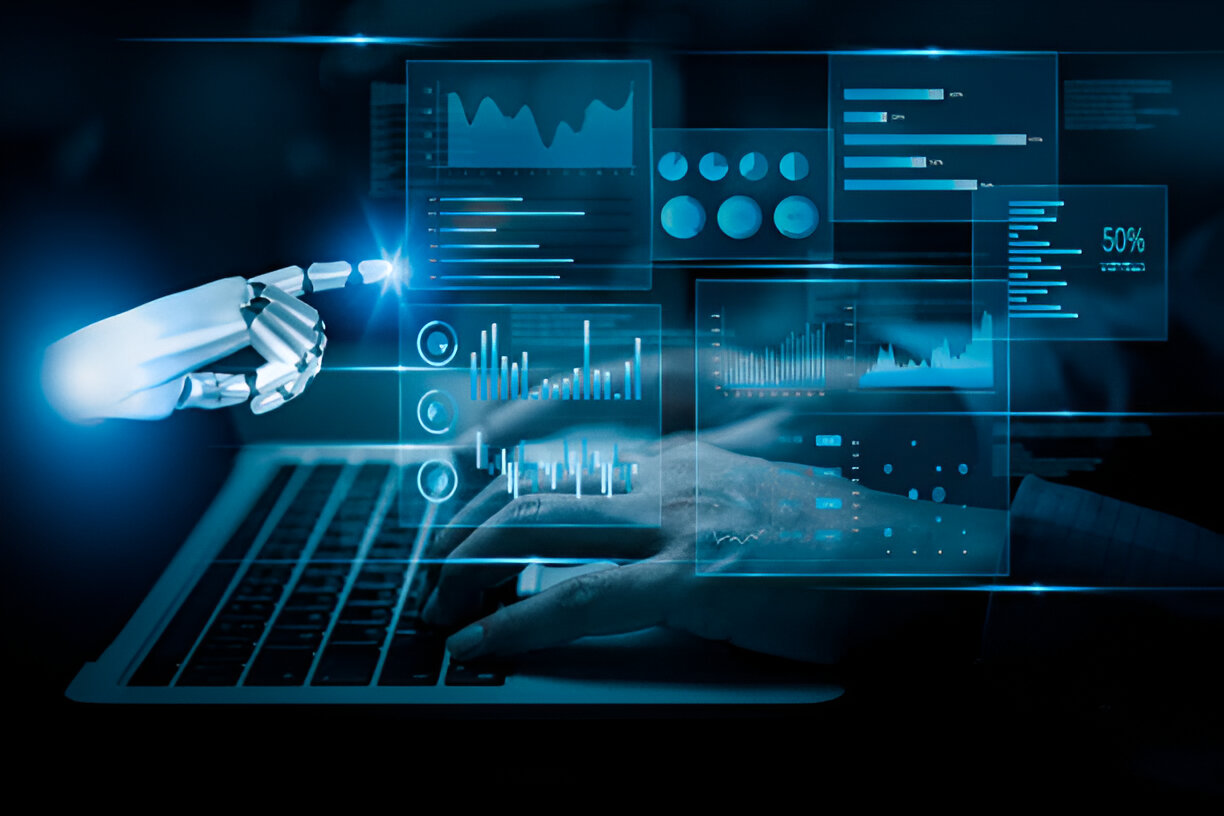In today’s fast-paced, digital-first world, chatbot development has emerged as a pivotal tool for enhancing customer engagement and streamlining operations. As businesses navigate the challenges of serving customers effectively, many are turning to chatbots to automate processes, provide instant support, and deliver personalized experiences. Are you struggling to meet your customer service demands? Do you wish you could generate more leads or enhance your sales strategy? These are common questions that many businesses face today, and effective chatbot solutions could be the answer. In this article, we’ll explore the top 10 use cases of chatbot development, showcasing how different industries leverage this technology to achieve their goals.
Chatbot Development Use Cases in Customer Service
How Chatbot Development Enhances Customer Support
Customer support is one of the most significant areas where chatbot development shines. By automating responses to frequently asked questions and providing instant support at any hour, chatbots can significantly reduce response times and improve the user experience.
Modern chatbots utilize natural language processing (NLP) to understand customer queries and provide relevant solutions. For instance, instead of waiting for hours to resolve a simple question, customers can immediately obtain answers about product features, shipping details, or service availability through an interactive chatbot.
Moreover, chatbots can be programmed to gather essential information from users, allowing customer service representatives to handle more complex issues when they arise. This layered approach not only boosts efficiency but also enhances customer satisfaction by eliminating the frustrations associated with long wait times.
Effective Examples of Chatbot Development in Action
A notable example of effective chatbot development in customer service is Sephora’s Virtual Artist. This chatbot helps users choose cosmetics by suggesting products based on personalized preferences and even allows virtual try-ons via augmented reality. By integrating chatbot technology, Sephora has transformed its customer service approach, leading to an increase in sales and customer retention.
Another example is the H&M chatbot on their mobile app, providing outfit suggestions based on user input. H&M’s use of chatbot technology streamlines customer interactions, turning a potentially complicated shopping experience into a seamless, engaging process.
Chatbot Development Use Cases for Lead Generation
Understanding Chatbot Development for Lead Qualification
Lead generation is another critical function where chatbot development proves invaluable. By using chatbots for lead qualification, businesses can filter potential clients based on specific criteria automatically. When a visitor engages with a chatbot, it can guide them through a series of questions to gather essential information about their needs, thereby qualifying them as leads.
By collecting data such as budget, timelines, and specific interests, chatbots can prioritize leads and hand them over to sales representatives armed with crucial context. This process saves time and ensures that human agents focus on high-potential leads, improving conversion rates and optimizing resources.
Successful Industry Examples of Lead Generation
A fine example of using chatbots for lead generation can be found in real estate. Companies like Zillow employ chatbots to interact with website visitors, asking about their property preferences. By guiding users through a structured conversation, the chatbot collects valuable data that helps real estate agents identify potential clients more effectively.
Another industry benefiting from chatbot lead generation is the insurance sector. Lemonade, an insurance startup, uses chatbots to process claims and answer queries, but they also harness this technology to determine if users qualify for specific types of coverage. This dual approach ensures lead qualification while providing efficient customer service.
Chatbot Development Use Cases in E-commerce
The Role of Chatbot Development in Online Shopping
In the e-commerce sector, chatbot development is revolutionizing the way customers shop online. From assisting users in navigating the website to managing order inquiries, chatbots play a pivotal role in enhancing the overall shopping experience.
By implementing chatbots, online retailers can provide product recommendations based on previous purchases or browsing behaviors, significantly improving the chances of conversions. Furthermore, chatbots can handle cart abandonment by following up with users who leave items in their carts, prompting them to complete their purchases with tailored messages.
Examples of Chatbot Development Solutions in E-commerce
A robust example of chatbot development in e-commerce is the Shopify Chatbot, which helps merchants communicate with customers. This solution enables store owners to answer questions in real-time, provide updates about orders, and assist in managing inquiries effectively without needing constant human oversight.
Another successful application is eBay’s ShopBot, which assists customers in finding specific products. By asking questions like what the user is looking for, the chatbot can narrow down choices, leading to a more enjoyable shopping experience. These implementations show how essential chatbot development is in e-commerce, contributing to higher sales and customer satisfaction.
Chatbot Development Use Cases for Healthcare
Enhancing Patient Engagement with Chatbot Development
In the healthcare industry, chatbot development is enhancing patient engagement significantly. Chatbots can provide 24/7 support, answering common health-related questions, booking appointments, and even reminding patients about medication schedules. This accessibility not only improves patient experiences but also frees healthcare providers from routine inquiries, allowing them to focus on critical tasks.
Moreover, healthcare chatbots can assist with symptom checking, guiding patients through a series of questions to suggest potential next steps. This function can be particularly useful for triaging patients seeking care, ensuring they receive appropriate attention in a timely manner.
Industry Examples of Chatbot Development in Healthcare
A leading example of chatbot development in healthcare is Ada Health, an AI-powered health assistant. Patients can describe their symptoms to Ada’s chatbot, which then provides information and potential actions based on their responses. This type of interaction not only assists patients in understanding their health conditions but also directs them to the appropriate healthcare providers.
Additionally, Buoy Health is a notable chatbot that guides users through health inquiries and provides personalized recommendations based on answers to medical questions. By utilizing chatbot development effectively, these companies enhance patient engagement and improve health outcomes.
Chatbot Development Use Cases in Travel and Hospitality
Improving Travel Experience Through Chatbot Development
The travel and hospitality industry has also embraced chatbot development. By integrating chatbots into their systems, companies can provide round-the-clock assistance to travelers, helping them with bookings, itinerary changes, and travel recommendations.
Chatbots can also query users about their travel preferences, thus curating travel packages, hotel recommendations, or activities tailored to various interests. This personalization fosters a sense of connection and enhances customer loyalty, which is invaluable in the competitive travel market.
Notable Examples of Chatbot Development in Travel
A prime example in the travel industry is KLM Royal Dutch Airlines, which employs a chatbot that aids customers with booking questions and flight updates via social media platforms like Facebook Messenger. This service allows KLM to offer immediate support, reducing the pressure on customer service teams while keeping travelers informed.
Similarly, the Marriott chatbot provides guests the ability to book rooms, manage their stay, and even request amenities—all through conversational interfaces. These examples highlight how effective chatbot development is in enhancing the travel experience for customers and simplifying booking processes.
Choosing the Right Software Development Company for Chatbot Development
Key Factors in Selecting a Software Development Company
When considering the implementation of chatbot solutions, the choice of a software development company plays a crucial role. Businesses must evaluate several factors, including the expertise of the company in chatbot technologies, their portfolio of past projects, and client reviews.
It’s also important to look for companies that understand the specific needs of your industry. For example, if you’re in the healthcare sector, working with a firm experienced in medical chatbot development may yield better outcomes. Communication and ongoing support capabilities are also essential, as these will determine the long-term success of your chatbot implementation.
Benefits of Collaborating with a Professional Mobile App Development Company
Partnering with a mobile app development company can provide invaluable insights and expertise in creating an effective chatbot. These companies are typically well-versed in various programming languages, frameworks, and tools that can enhance chatbot functionality.
By collaborating with a professional mobile app development company, businesses can ensure that their chatbots are scalable, secure, and integrate seamlessly into existing platforms. This collaboration reduces the risk of issues down the line and can lead to more innovative solutions that engage customers effectively.
Future Trends in Chatbot Development Use Cases
Exciting Innovations in Chatbot Development
As technology continues to evolve, so does chatbot development. One exciting trend is the rise of AI-driven chatbots that utilize machine learning to improve their response accuracy and learn from previous interactions. These chatbots can analyze user behavior data to tailor responses even better, driving engagement and personalization.
Conversational commerce is another trend gaining momentum. Chatbots will increasingly facilitate transactions, allowing users to make purchases, book appointments, and send payments directly through chat interfaces without needing to navigate multiple platforms.
Industry Examples of Evolving Chatbot Development Trends
In the retail industry, for instance, companies like Starbucks have embraced AI-driven chatbots to facilitate personalized marketing and purchases. Their app allows users to make orders, pay, and even earn rewards through an integrated chatbot interface, showcasing the effectiveness of this evolving technology.
Furthermore, in the banking sector, chatbots like Erica from Bank of America provide customers with personalized financial advice and perform transactions. This adaptation of chatbot development is indicative of how industries are incorporating advanced technology to improve customer service and engagement continually.
Conclusion
In conclusion, chatbot development offers a wealth of innovative use cases across various industries. From enhancing customer service to driving e-commerce sales, and improving healthcare engagement, the applications of chatbots are both diverse and impactful. As businesses consider incorporating this technology into their strategies, partnering with a trusted software development company or mobile app development company is essential for successful implementation.
Wildnet Edge stands out as an AI-first company well-equipped to address your chatbot development needs. With a wealth of experience in creating tailored chatbot solutions, Wildnet Edge is your go-to partner for navigating the complex landscape of AI-powered technologies. Don’t miss out on the opportunity to engage your customers and streamline your operations—explore chatbot development today!
FAQs
Chatbot development use cases range from customer service to lead generation, e-commerce applications, patient engagement in healthcare, and enhancing travel experiences.
Chatbot development automates responses, enhances customer support, and provides immediate assistance, improving overall customer satisfaction while reducing wait times.
Yes, effective chatbot development qualifies and nurtures leads efficiently by gathering essential information and prioritizing inquiries for sales teams.
Healthcare, e-commerce, travel, and hospitality industries benefit significantly from chatbot development solutions, enhancing both customer interactions and service efficiency.
A mobile app development company provides specialized expertise in chatbot technologies and ensures seamless integration with existing systems, optimizing functionality and user experience.

Managing Director (MD) Nitin Agarwal is a veteran in custom software development. He is fascinated by how software can turn ideas into real-world solutions. With extensive experience designing scalable and efficient systems, he focuses on creating software that delivers tangible results. Nitin enjoys exploring emerging technologies, taking on challenging projects, and mentoring teams to bring ideas to life. He believes that good software is not just about code; it’s about understanding problems and creating value for users. For him, great software combines thoughtful design, clever engineering, and a clear understanding of the problems it’s meant to solve.
 sales@wildnetedge.com
sales@wildnetedge.com +1 (212) 901 8616
+1 (212) 901 8616 +1 (437) 225-7733
+1 (437) 225-7733















 ChatGPT Development & Enablement
ChatGPT Development & Enablement Hire AI & ChatGPT Experts
Hire AI & ChatGPT Experts ChatGPT Apps by Industry
ChatGPT Apps by Industry ChatGPT Blog
ChatGPT Blog ChatGPT Case study
ChatGPT Case study AI Development Services
AI Development Services Industry AI Solutions
Industry AI Solutions AI Consulting & Research
AI Consulting & Research Automation & Intelligence
Automation & Intelligence













